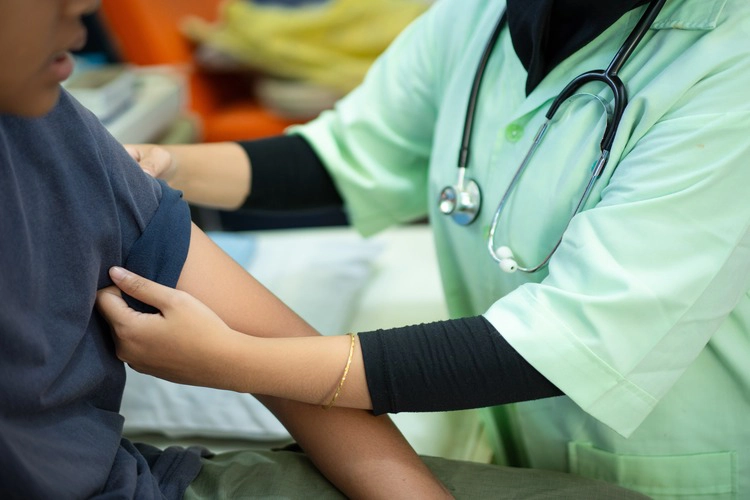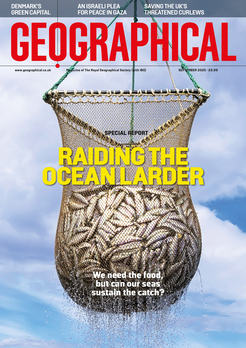
Now declared as a public health emergency, the contagious disease mpox is spreading across Africa: but how and why is this outbreak happening?
By
Mpox, the contagious disease spreading through Africa – has now been declared as a public health emergency on an international level by WHO, marking the second time that the disease has been declared as such in the past two years.
A milder version of mpox spread to more than 100 countries in 2022 – totalling 87,000 cases and 112 deaths – but now an uptick in cases has been reported in the Democratic Republic of Congo (DRC) and other African countries since the emergence of mpox’s new strain, clade 1b – first reported in sex workers in Kamituga – last year.
This year, cases of the disease – endemic to countries in Central and West Africa – have exceeded 15,000, and 537 deaths have been reported, already exceeding last year’s figures. On Thursday, a case was reported in Sweden, confirmed by Health and Social Affairs Minister Jakob Forssmed. Symptoms of mpox range from a skin rash or pus-filled lesions, to fever, headaches, swollen lymph nodes and low energy.
So how do infectious diseases like mpox spread? Here we take a look at three key reasons that contribute to the outbreak of mpox.
Urbanisation

One reason for the spread of infectious diseases such as pox is urbanisation. These diseases thrive in poor and overcrowded environments, as well as areas with unhealthy housing and waste management. Pox can be spread via contact with bodily fluids or lesions on the skin, respiratory droplets, or contaminated objects. Living in overcrowded spaces makes it harder for individuals to adhere to hygienic practices in order to avoid contact with the disease.
Increased urbanisation also brings about greater transport networks and more social interactions. Most cases of mpox occurring outside of Africa are as a result of international travel, imported animals or close contact with an animal or person with mpox. As the world continues to become more and more interconnected, the spread of infectious diseases can proliferate.
Other social & environmental factors

As a result of rapid growth due to urbanisation, negative social and environmental health impacts can occur that disproportionately impact those who are the poorest and most vulnerable, increasing the likelihood of them being infected.
These groups are also more likely to experience inadequate sanitation and poor potable drinking water too, again contributing toward a greater likelihood of infection with mpox. A lack of adequate surveillance and detection capacity over mpox cases – due to poverty in endemic areas – is another factor contributing to the disease’s outbreak.
Mpox can also be spread through physical contact with infected animals, such as species of monkeys, dormice or terrestrial rodents (such as the tree squirrel). Being bitten, scratched, trapping or cooking these animals can also cause infection.
Mpox vaccination rollout

Within urban areas, there is usually a stark difference in health equity between residents. Disadvantaged groups, such as migrants, often live in areas with little access to educational opportunities and health services. A shortage of mpox vaccines in Africa – requiring 10 million doses, but with only 200,000 available – combined with certain groups having limited access to the healthcare providers that can administer them, forms part of the reason for mpox’s continual spread.
Decreasing population immunity due to the widespread smallpox vaccination being ceased could play another role in an increase in mpox cases.
In the wake of mpox’s outbreak, The European Commission’s Health Emergency Preparedness and Response Authority, HERA, has pledged to donate 175,420 doses of the MVA-BN vaccine. Only two African countries have granted Emergency Use Authorization for the MVA-BN vaccine as of yet – but biotech company Bavarian Nordic may submit an Expression of Interest for Emergency Use Listing (EUL) – a process that would fastrack vaccine rollouts to other parts of Africa without national regulatory approvals.




